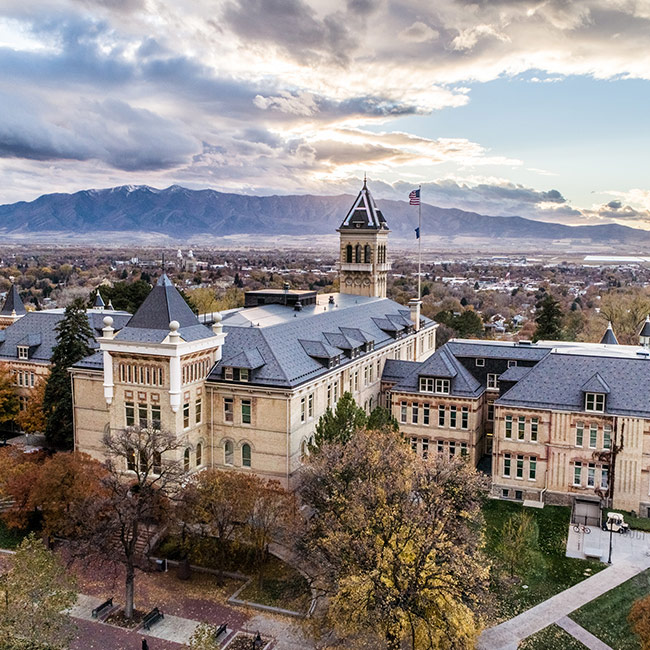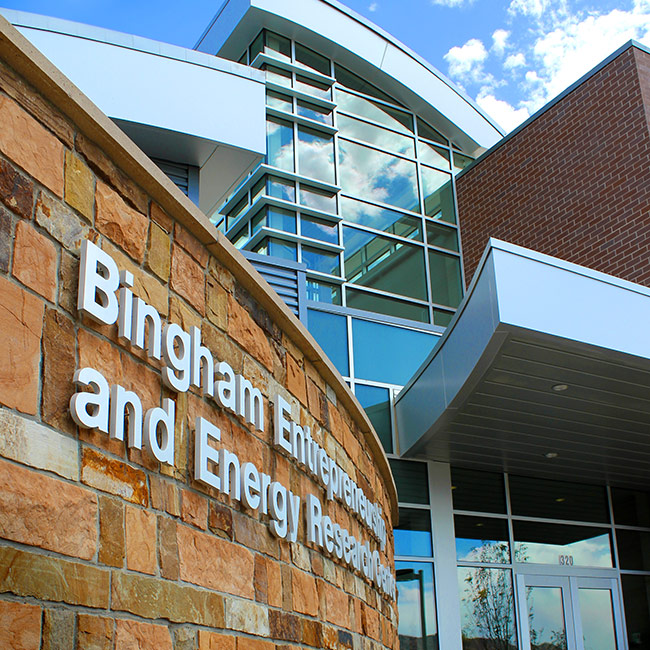About This Degree
The master of food microbiology and safety degree is a professional degree designed to provide students with in-depth training in food safety assurance.
It also trains students in the use of management systems that address food safety through the analysis and control of biological, chemical, and physical hazards from raw material production, procurement and handling, and manufacturing, distribution, and consumption of the finished product.
The degree is primarily intended for individuals who plan to have careers in food quality assurance or other food safety-related positions in the food industry, and is offered completely online.
Because this program is designated as a Western Regional Graduate Program, students from participating western states qualify for in-state tuition. For more information, visit http://wrgp.wiche.edu.
ADVISING
At a Glance
College: College of Agriculture and Applied Sciences
Department: Nutrition, Dietetics and Food Sciences Department
USU Locations:
- Logan campus
- Statewide campuses
- USU Online
Program Requirements
Career And Outcomes
Career Opportunities
Students who graduate with the MFMS degree typically pursue careers in food quality assurance or other food safety-related positions in the food industry.
Job Outlook
USU Locations
*This degree is available at various USU locations.
- Beaver
- Bicknell
- Blanding
- Brigham City
- Castle Dale
- Cedar City
- Cortez (CO)
- Delta
- Ephraim
- Heber City
- Junction
- Kanab
- Kaysville
- Moab
- Montezuma Creek
- Monticello
- Monument Valley
- Nephi
- Orem
- Panguitch
- Park City
- Price (USU Eastern)
- Richfield
- Roosevelt (Uintah Basin)
- Salt Lake
- St George
- Tooele
- Tremonton
- Vernal (Uintah Basin)
- Wendover
**This degree is 100% available online. USU is a SARA-approved institution offering fully online programs nationwide; please visit USU's state authorizations for details.
The MFSQ is a fully online program. All courses are delivered in an asynchronous online format.
Admission
Admission Requirements
A bachelor's degree is required for admission into the MFSQ program. A degree in food science or a closely related area is recommended, but at minimum students must have a good understanding of science and mathematics. In some situations prerequisite courses may be needed before students can enroll in MFSQ courses. These can be taken concurrently with graduate coursework and are determined on a case-to-case basis.
Application Requirements:
- Complete the online application
- Pay the $55 application fee
- Score at or above the 40th percentile on the GRE, GMAT or MAT
- Have a 3.0 or higher GPA on your last 60 semester or 90 quarter credits
- Provide transcripts of all college/university credits
- Provide three contacts for letters of recommendation
International students have additional admissions requirements.
Deadlines
This program has rolling admission, meaning the department will continue to consider and accept applications until the program is full. The time it takes to process an application is primarily dependent on the speed with which the School of Graduate Studies receives letters of recommendation, transcripts, and test scores. For most students, this process may take six to eight weeks. Applicants should plan accordingly.
Plan Options
The MFSQ is a professional (Plan C) graduate degree designed to provide in-depth training in food science and food safety. This program is flexible to meet the needs of most students who desire to enhance their careers.
A departmentally approved program that includes a capstone project in Food Safety and/or Quality must be filed in the School of Graduate Studies. Capstone project proposals should be discussed with your advisor the semester before you register for capstone credit.
Take The Next Step
How to Apply
View our step-by-step guide on how to become an Aggie.
Request Information
Contact the School of Graduate Studies to ask questions or receive more information.
Cost and Funding
Calculate the cost of graduate school and learn about funding opportunities.
You May Also Be Interested In

Biochemistry
Study in a program that receives consistent funding from national agencies. Conduct your research in areas such as global energy, bioremediation, and human health and disease.

Biological Engineering
Apply engineering principles to cells, microbes, and DNA to solve society’s issues. Be part of a premier program with nationally recognized faculty and top research facilities.

Nutrition and Food Sciences
Study all the aspects related to nutrition and food science, from the cultural and psychological to the scientific and economic aspects of food science, production, and consumption.

Practitioner of Food Safety
This graduate certificate program designed to provide students with advanced training in food microbiology, toxicology, and sanitation.




